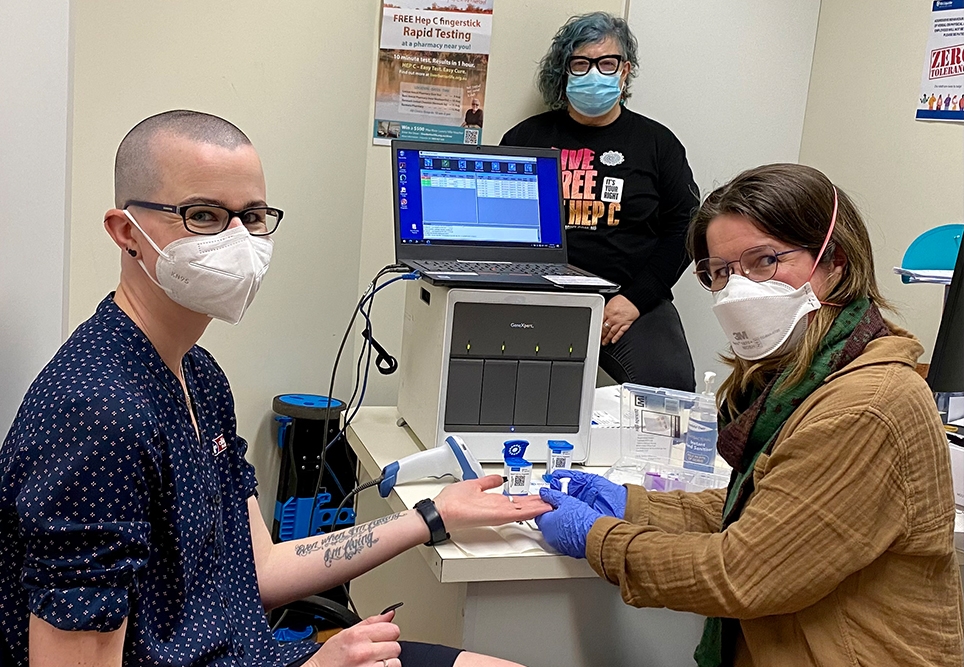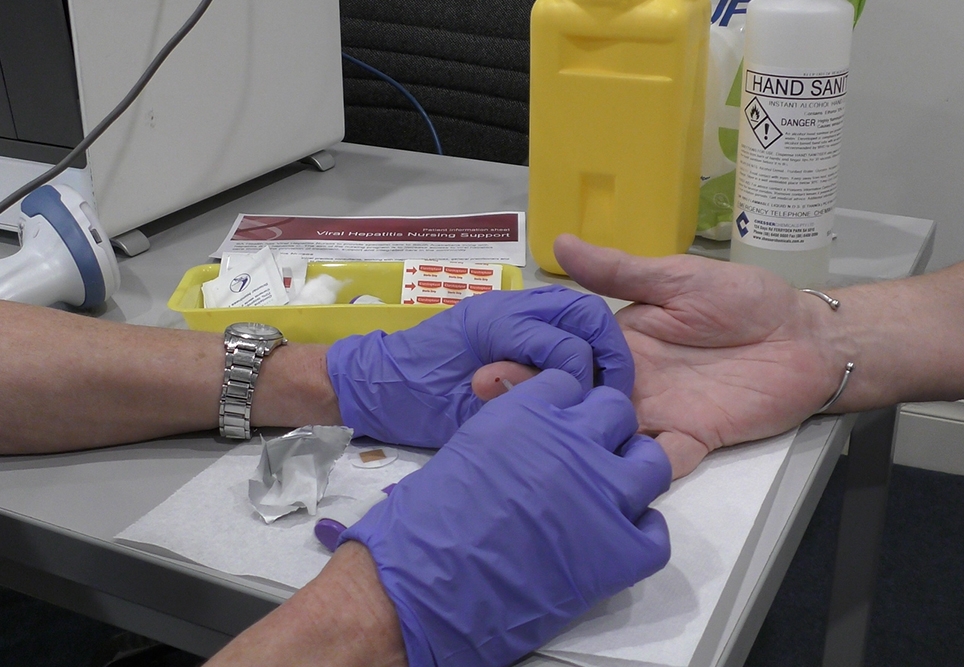
The impetus behind the program is the decline in hepatitis C testing and treatment after the initial surge following the approval of new treatments in 2016.
Point-of-care testing is done with a drop of blood processed in a portable machine that provides results within an hour. The portability means testing can be taken to where people go regularly for other services.
National Australian HCV Point of Care Testing (HCVPOCT) Project Coordinator, David Silk, said around 25 per cent of total testing sites are rural. For example in Murray Bridge, South Australia, there will be testing clinics in the community as well as at the Moorundi Aboriginal Controlled Health Service. Pangula Mannamurna in Mount Gambier will also be hosting clinics.
Viral Hepatitis Nurses Rosalie Altus and Lucy Ralton from the Southern Adelaide Local Health Network (SALHN), together with Hepatitis SA, have connected with local services to plan regular point-of-care testing sessions in Murray Bridge beginning in March.
“Murray Bridge is an area with a lower socio-economic index that’s been deeply affected by drug use in recent years,” said Lucy. “Compared to Greater Adelaide, it has a higher proportion of unemployment and people looking for work as well as people with a disability.
“These are all factors associated with a higher risk of hepatitis C infection.”
Hepatitis SA educators provide free education sessions to workers in health and community services and the nurses coordinate with services interested in hosting testing clinics, to work out the best times and format for them.
Moorundi’s Aboriginal Health Clinical Director, Beth Hummerston, thinks hepatitis C point-of-care testing will work well for them, particularly in Murray Bridge as they will soon become a Clean Needle Program (CNP) site.

“Having a CNP available may provide opportunities to talk to people about hepatitis C testing and is a way of addressing disparities in health services for people who likely don’t access health services regularly,” she explained.
“We have very experienced Aboriginal Health Practitioners who can do the testing independently. We would be able to offer point-of-care testing opportunistically, in response to circumstances. We can be flexible,” she said.
“We hope to eventually take the machine to other communities at Raukkan and Victor Harbor.
“For people who test positive, we book them with our GPs to ensure the experience is culturally comfortable.”
People who test positive in the nurses’ community clinics can be immediately referred to their GPs for treatment. For those who don’t have a GP, alternative arrangements can be made.
Lucy said metro-based Viral Hepatitis Nurse Consultants are experienced in working with individuals remotely to help them access hepatitis C testing and treatment.
“We can discuss results with patients over the phone and arrange for whatever’s needed pre and post treatment. These days, people don’t have to travel to a major centre to check their hepatitis C status or to get treatment. In South Australia, they can just call a Viral Hepatitis Nurse,” she said.
